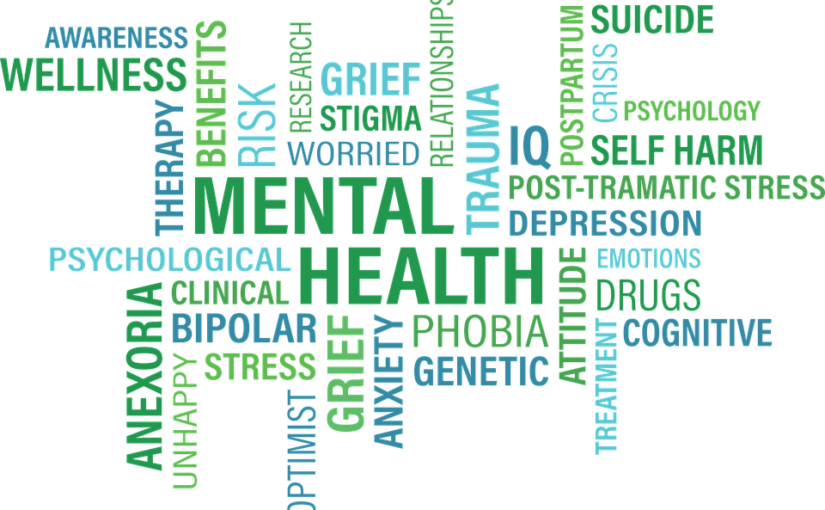While it is a well-known statistic that one in four people will be diagnosed with a mental illness, many experts are now saying that mental illness is on the rise on college campuses.

Bringing awareness to more mental health issues can help those struggling.
According to the American Psychological Association, the past five years has seen an increase in anxiety disorders, clinical depression and other mental health issues that have impaired their ability to function. However, because of the stigma surrounding mental illness, it is uncommon for individuals to talk about this difficult subject.
Mental health in my family, like many others, was not something that was talked about openly. I was diagnosed with Generalized Anxiety Disorder (GAD) and Social Anxiety, which many of my friends and family responded with a mixture of surprise and confusion.
My friends were shocked to find that I had been struggling with undiagnosed anxiety for most of my life, while my parents were at a loss with how they could help support me with this new information.
Mental illness, after all, can be a confusing subject. For many, it is difficult to wrap their mind around something that they cannot physically see and observe, or the realization that their friend or family member will likely be living with their mental illness for the rest of their life.
For myself, even on medication, life with anxiety is a rollercoaster with constant twists and turns and sudden drops.
A simple task such as writing an email is threaded with worrying thoughts and feelings of dread. Every comment, conversation and action is replayed in the back of my mind, pointing out my failures. Work, especially, is a battlefield, in which I force myself to concentrate on the present, rather than let my mind wander through the “what if’s” and anxious thoughts that await me there.
Every coping method and distraction is a wall against a panic attack that could be waiting around the corner.
Perhaps the worst part of it is most of the time there is no reason for me to be anxious and I know that my worries are silly, that the evidence my mind creates is unsupported by facts. This is the definition of what it means to have Generalized Anxiety Disorder in which the individual worries about everything, with or without reason.
Life with a mental illness can be hard, but it is not a death sentence. Fortunately for those that suffer from anxiety, depression, bipolar and other known mental illnesses, they are treatable. You can learn to cope with them.
A combination of medication, counseling, supportive friends, family and my two cats have helped me manage and cope with my anxiety disorder and give me valuable insight as an activist and mental health advocate.
As college students are of the age group in which mental health issues are more commonly found, here is some advice on how to take care of yourself this semester:
1. Breathe
This might sound ridiculous to some, but in stressful situations such as exams or before a presentation, taking a few moments to breathe can be a crucial part of managing your mental health.
2. Ground yourself
Use the following exercise to help yourself calm down by observing things around you:
Five things you can see.
Four things you can hear.
Three things you can touch.
Two things you can smell.
One thing you can taste.
3. Talk
Reach out to a friend or family member. Sometimes venting to a close friend, parent or sibling can help take your mind off of the situation or you may end up coming up with a solution. Having a positive support group to rely on is essential to good mental health.
